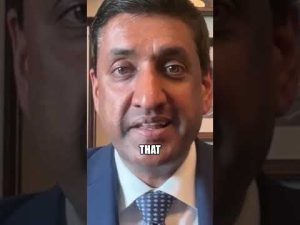As New Year’s celebrations approach, Rudy Giuliani, the former mayor of New York City, finds himself in the sunny state of Florida, sharing insights that are sure to ignite conversation. With fireworks popping in the background and the glitz of Mar-A-Lago just a stone’s throw away, Giuliani takes a moment to reflect on what many regard as one of the wildest years for legal battles in the United States—and that’s saying a lot. The focus remains on the recent developments surrounding former President Donald Trump, and Giuliani pulls no punches in his analysis.
The year kicked off with a shocking case involving E. Jean Carroll, a writer who was handed a staggering $80 million in damages after her suit against Trump. Giuliani expresses disbelief over the persistence of such a case. He argues that the allegations were flimsy at best, as Carroll couldn’t even provide a specific date for the alleged incident. The suggestion that someone could win a case without being able to pinpoint when the supposed wrongdoing took place seems absurd to Giuliani, who insists that the legal system should require more substantial evidence than vague claims.
Judicial integrity—or lack thereof—also comes under scrutiny from Giuliani. He points out that the judges in New York, particularly those appointed by Democratic leaders, cannot be trusted to deliver fair rulings. According to him, these judges seem more like political appointees than impartial arbiters of justice. He goes on to argue that a fair-minded judge would have dismissed Carroll’s case outright, suggesting that the political machinations at play are clouding the judicial process. Giuliani even goes so far as to liken the New York legal system to a communist one, where the lines between justice and politics are all but erased.
Another case that raises eyebrows is that of Judge Juan Merchan, who presided over Trump’s criminal trial regarding a false record connected to a supposed felony. Giuliani claims that the parameters of the charges were unclear, as Trump was never informed about the specific felony he was allegedly involved in. He suggests that this lack of clarity is a violation of due process—a right that should be afforded to every American, regardless of political affiliation. The insinuation is clear: the legal system is rife with corruption, particularly when it comes to cases involving high-profile figures like Trump.
One can’t help but notice Giuliani’s disbelief over the valuation placed on Mar-A-Lago. He points out that an appraised worth of $18 million is laughable, especially when comparable properties are valued much higher. Such discrepancies, he insists, illustrate the broader problem of political bias infiltrating the legal and economic systems. With a historical nod, Giuliani mentions the corruption that has plagued New York City for generations, making the case that a return to Republican leadership is not only welcome but essential for restoring integrity.
As Giuliani shares his thoughts, one thing becomes increasingly clear: his deep-rooted belief in the resilience and greatness of New York City prevails, despite its political challenges. He credits much of the city’s vitality to his time as mayor, where he worked tirelessly to make it a better place to live. Even though he may have a few grievances with the current state of affairs, his affection for the city remains intact. As 2025 approaches, the conversation around these legal and political issues promises to heat up, and Giuliani’s perspectives are likely to spark further debate among both supporters and critics alike.







